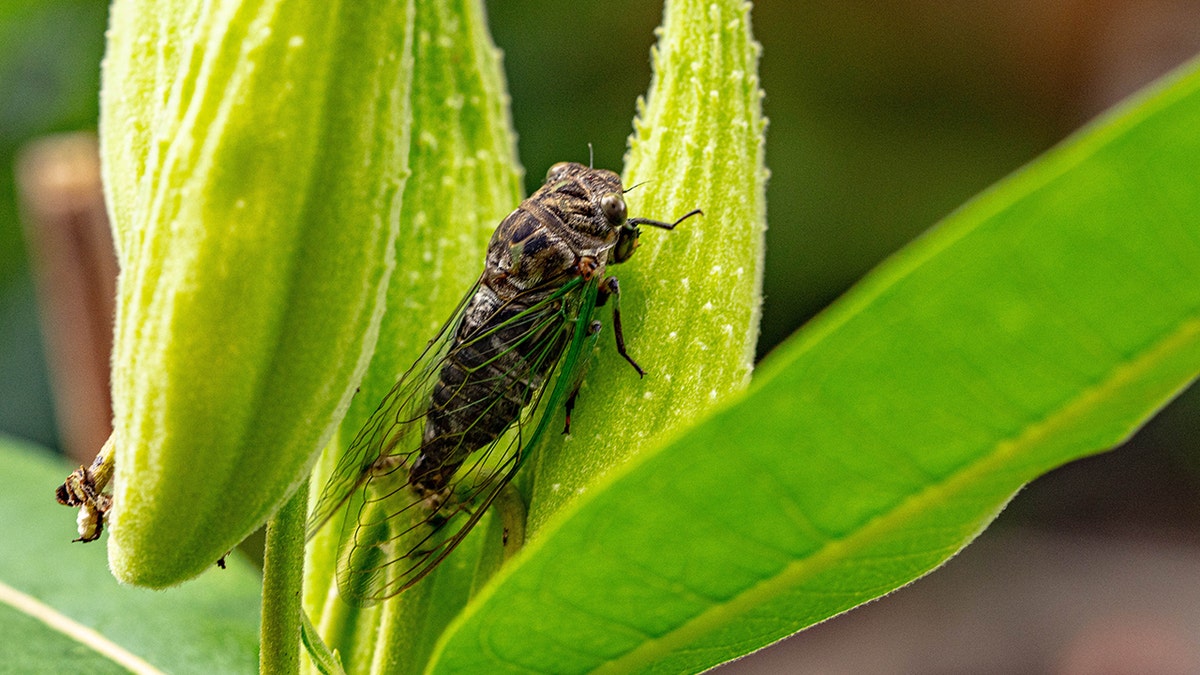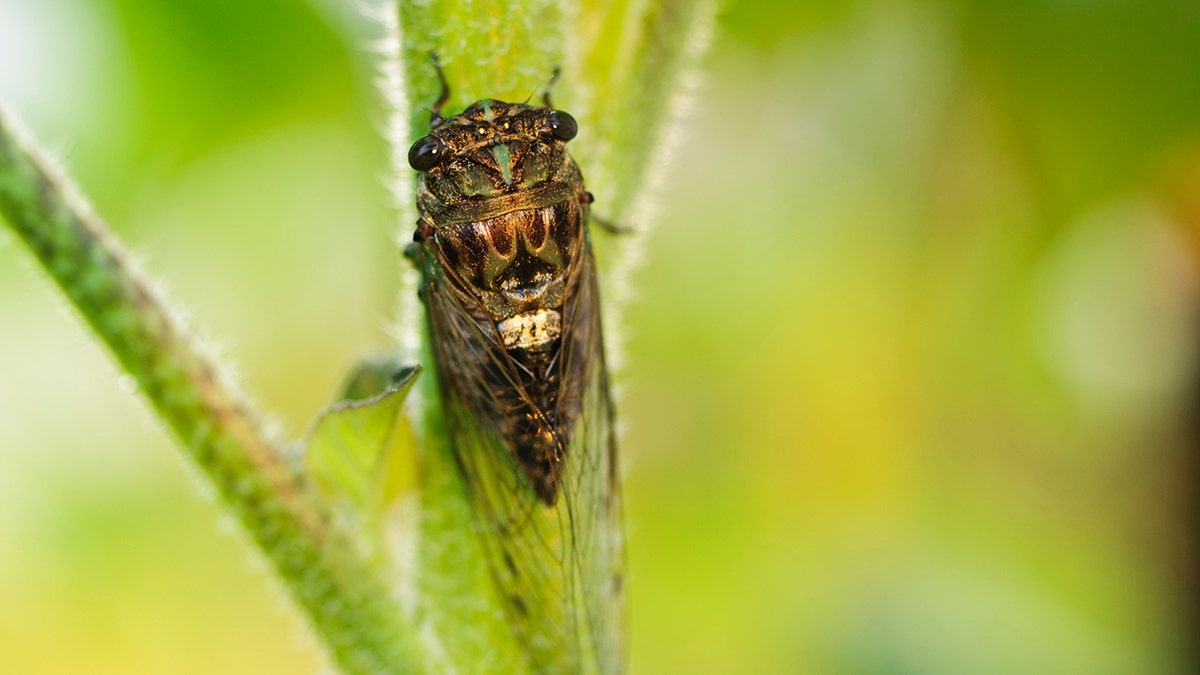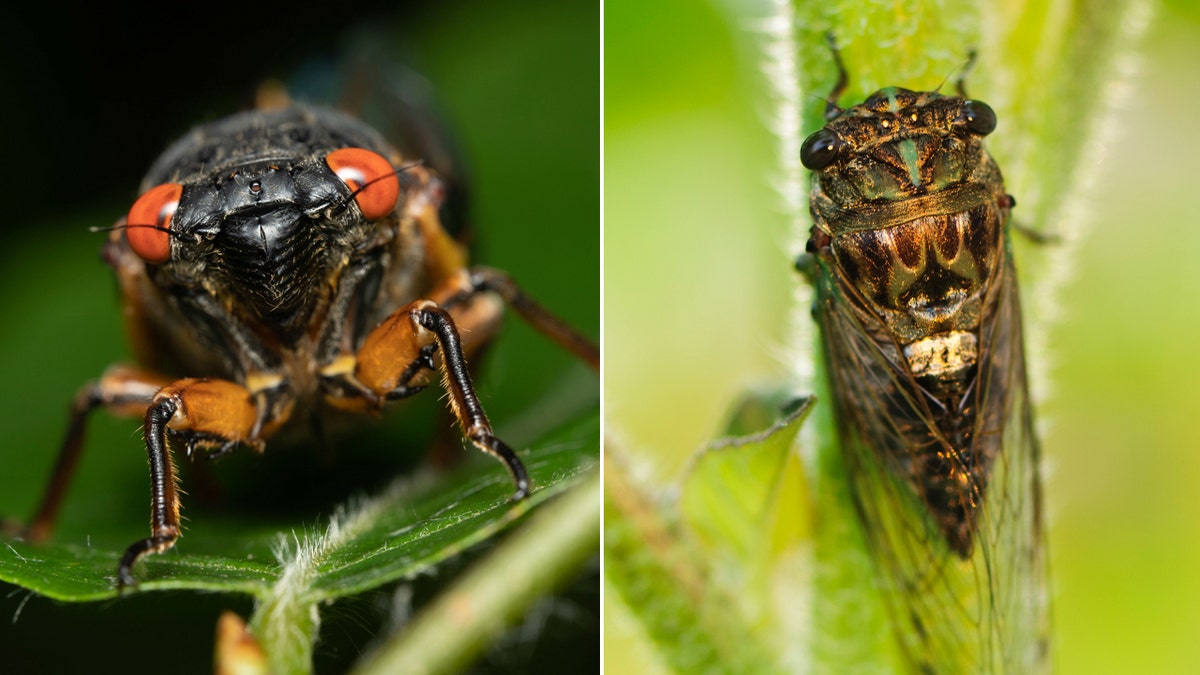Fox News Flash top headlines for January 23
Fox News Flash top headlines are here. Check out what's clicking on Foxnews.com.
It sounds like spring 2024 will be abuzzing as more than a trillion cicadas are expected to appear across the U.S.
For the first time in 221 years, the two groupings of cicadas, brood XIX and XIII, will emerge from the underground in 17 states across the country, according to Fox Weather.
Some of the states that will see both broods in 2024 are Illinois and Indiana.
"Most cicada species come out every year, but in the United States, there are two periodical broods of cicadas that stay underground for either 13 years or 17 years," Fox Weather reported.
"The last time they came above ground at the same time was in 1803."

For the first time in 221 years, two broods of cicadas will emerge simultaneously across North America — overlapping in two states. (iStock)
This year will see a "simultaneous explosion" of cicadas across North America, Hannah Fry, a British mathematician and science presenter, said in a video posted to her Instagram page.
Fox Weather noted that the last time the cicadas rose above ground simultaneously was in 1803. "when Thomas Jefferson was president, and Napoleon was thinking about invading England," Fry said on Instagram.
Fox News reached out to Fry for comment.
GOOD LUCK OMENS! WHY THE PRAYING MANTIS, BUTTERFLY AND LADYBUG ARE THOUGHT TO BRING GOOD THINGS
What makes this emergence so unique is that different broods co-emerge every five to six years, but there is usually a separation geographically, Fox Carolina reported.
"This year is different since the two broods are adjacent to each other and even have a slight overlap," the station wrote.
Brood XIX last emerged in 2011 and Brodd XIII came out in 2007.

The explosion of Brood XIX and Brood XIII will overlap in areas across Indiana and Illinois. (iStock)
"Brood XIX is arguably the largest (by geographic extent) of all periodical cicada broods, with records along the east coast from Maryland to Georgia and in the Midwest from Iowa to Oklahoma," researchers at the University of Connecticut (Uconn) wrote on its website about the species.
Cicada Mania, a website dedicated to cicada insects, states that Alabama, Arkansas, Georgia, Illinois, Indiana, Kentucky, Louisiana, Missouri, Mississippi, North Carolina, Oklahoma, South Carolina, Tennessee and Virginia will witness the emergence of Brood XIX in the spring of 2024.
Brood XIII is set to emerge in Iowa, Illinois, Indiana, Wisconsin and possibly Michigan, the Cicada Mania added.

The body of a cicada is composed of a head, a thorax and an abdomen. Its head has two antennae, two compound eyes, three simple eyes and a clypeus "that connects the beak to the head," according to cicadamania.com. (iStock)
The number of cicadas that are set to emerge this year exceeds a trillions, Uconn reported.
"The state of Delaware is roughly 1.5 million acres in size. If the total combined area of a periodical cicada emergence is roughly the size of Delaware," Uconn wrote in its online article titled, "The 2024 Periodical Cicada Emergence."
CLICK HERE TO GET THE FOX NEWS APP
The emergence is believed to take place in the middle of May and end in June.
"When they emerge, it gets noisy – 105 decibels noisy," the Associated Press (AP) wrote. "Like ‘a singles bar gone horribly, horribly wrong,’" entomologist John Cooley of the University of Connecticut told the news outlet.
University of Illinois entomologist May Berenbaum told the AP that some people "dread the cicada emergence."
Cicadas aren’t poisonous. They don’t bite or sting and are "largely harmless to humans and animals," researchers at Purdue University in Indiana wrote in an article titled, "Emergence of the 17-Year Cicada."
"However, the material their exoskeleton is made of is difficult for some animals to digest and may upset their stomach. If you are concerned about your pet, we strongly recommend consulting with your veterinarian."
For more Lifestyle articles, visit www.foxnews.com/lifestyle.










































